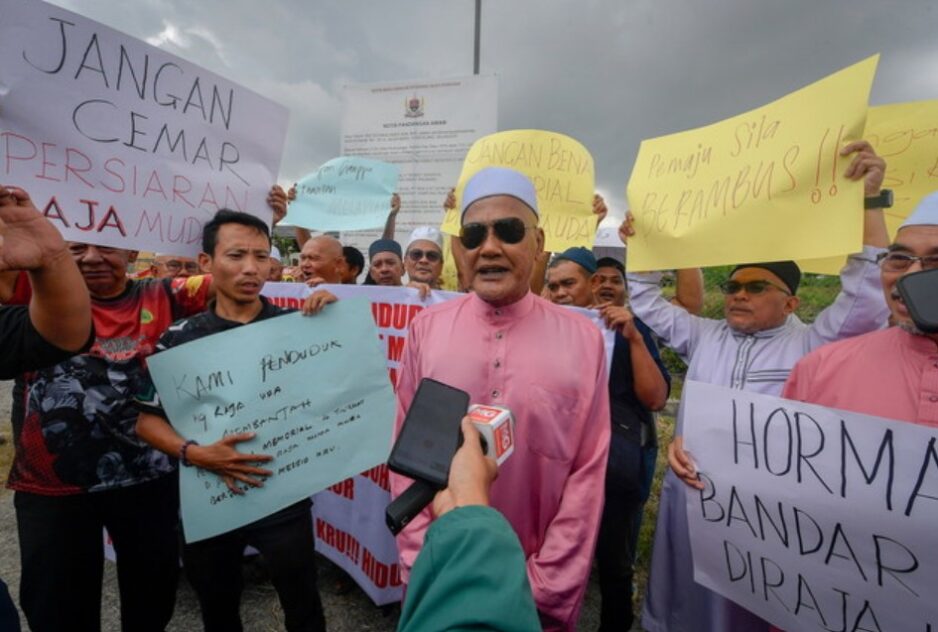THE recent surge in COVID-19 infection rate coupled with the re-imposition of the movement control order (MCO 2.0) and the declaration of a state of Emergency does not augur well for Malaysia’s real estate sector.
Although the property market in 2021 is expected to be flattish or record a slightly better performance than last year, the hoped-for recovery may be delayed till 2022, according to Henry Butcher Real Estate chief operating officer Tang Chee Meng.
Henry Butcher Malaysia Group founding partner and director Long Tian Chek expressed hope that the Government will extend the home ownership campaign (HOC) while continuing to come up with additional measures to help the property industry tide through this difficult period and to stage a sustainable recovery.
Below are excerpts of Henry Butcher Malaysia Perspective 2021 on the Malaysian real estate sector:

Residential sector: The advent of the work from home culture has made internet connectivity as well as private work places within the home very important considerations in house design and new homes rolled out by developers from now on would likely place more emphasis on this aspect of home design.
Landed residential properties are expected to remain in demand while the huge overhang of high-rise residences – especially serviced apartments – will make this segment of the market more challenging.
More developers have re-focussed their attention on affordable homes priced under RM500,000 and this market segment will continue to be the main focus in 2021.
The commencement/completion of various major infrastructure projects such as the East Klang Valley Expressway (EKVE) scheduled for completion in 3Q 2021, the Rapid Transit System (RTS) as well as the Kulai Iskandar Data Exchange (Kidex) projects in Johor, the East Coast Rail Link (ECRL) and the Pan Borneo Highway in East Malaysia will boost demand for properties located near the interchanges of the highways or within the vicinity of the developments.
 Office sector: The oversupply situation (especially in the Klang Valley) was exacerbated by the adverse impact of the pandemic and the ensuing lockdowns on the economy imposed by the Government to curb the spread of the COVID-19 virus.
Office sector: The oversupply situation (especially in the Klang Valley) was exacerbated by the adverse impact of the pandemic and the ensuing lockdowns on the economy imposed by the Government to curb the spread of the COVID-19 virus.
The Government’s directive to companies to adopt work from home practices for their staff as well as business closures and the poor business outlook compounded the problem as this led to companies deferring expansion plans and an overall decline in demand for office space.
The future completion of a number of mega office projects currently being built, notably Merdeka 118 by Permodalan Nasional Bhd (PNB) will add substantially to the supply of office space in Kuala Lumpur, thus piling additional pressure on the overall occupancy and rental rates.
The increase in vacancy rates of office buildings in the Klang Valley may lead to some developers shelving or deferring their office developments and this will ease the pressure on the oversupply situation.

Retail sector: A total of eight new shopping centres and two mall extensions were opened in the Klang Valley in 2020, putting an additional nett floor area of more than 2.7 million sq ft onto the existing supply
The retail sector in the Klang Valley will continue to see a shakeout where poorly designed and malls in inferior locations will be forced to close or be converted to some other alternative uses.
New shopping centres will face challenges in filling up space and some may defer opening if they are unable to open at a satisfactory level of occupancy.
Many retailers who are unable to sustain operations during this difficult period took the opportunity to close unprofitable outlets, downsize or stopped operating completely and this included venerable established names like Robinsons and Tangs.

Industrial sector: This sector was not spared by the pandemic as supply chain and production were disrupted by the standard operating procedures (SOPs) implemented under the various phases of the movement control orders.
All was however not doom and gloom as manufacturers of gloves, face masks, personal protective equipment (PPE) equipment and health equipment benefitted from the increase in demand for such products.
Warehousing as well as logistics service providers also benefitted from the e-commerce boom experienced during the lockdowns.
Despite registering a decline in the volume and value of transactions, the industrial property sector was the best performing of all the property sectors.
 Hospitality & leisure sector: The tourism sector was one of the most badly hit economic sectors as foreign tourists were not allowed into the country as part of the Government’s efforts to fight the COVID-19 pandemic.
Hospitality & leisure sector: The tourism sector was one of the most badly hit economic sectors as foreign tourists were not allowed into the country as part of the Government’s efforts to fight the COVID-19 pandemic.
Domestic tourism also dried up during the MCO 2.0 period when inter-district and inter-state travel were prohibited and only recovered when the travel restrictions were lifted under the conditional MCO (CMCO) and recovery MCO (RMCO).
Hotels and tourism-dependent businesses were badly affected with many hotels either went on a cost-cutting or retrenchment exercise or closed down completely. More than 200 hotel and tourism operators have shut down operations since March 2020.
The cancellation of Visit Malaysia Year 2020 dealt a huge blow to the tourism industry. Until international borders are re-opened and domestic travel restrictions are removed or at least relaxed, the hospitality sector is expected to continue to go through very tough times and will unlikely be able to see any sustained recovery in 2021. – Feb 1, 2021









